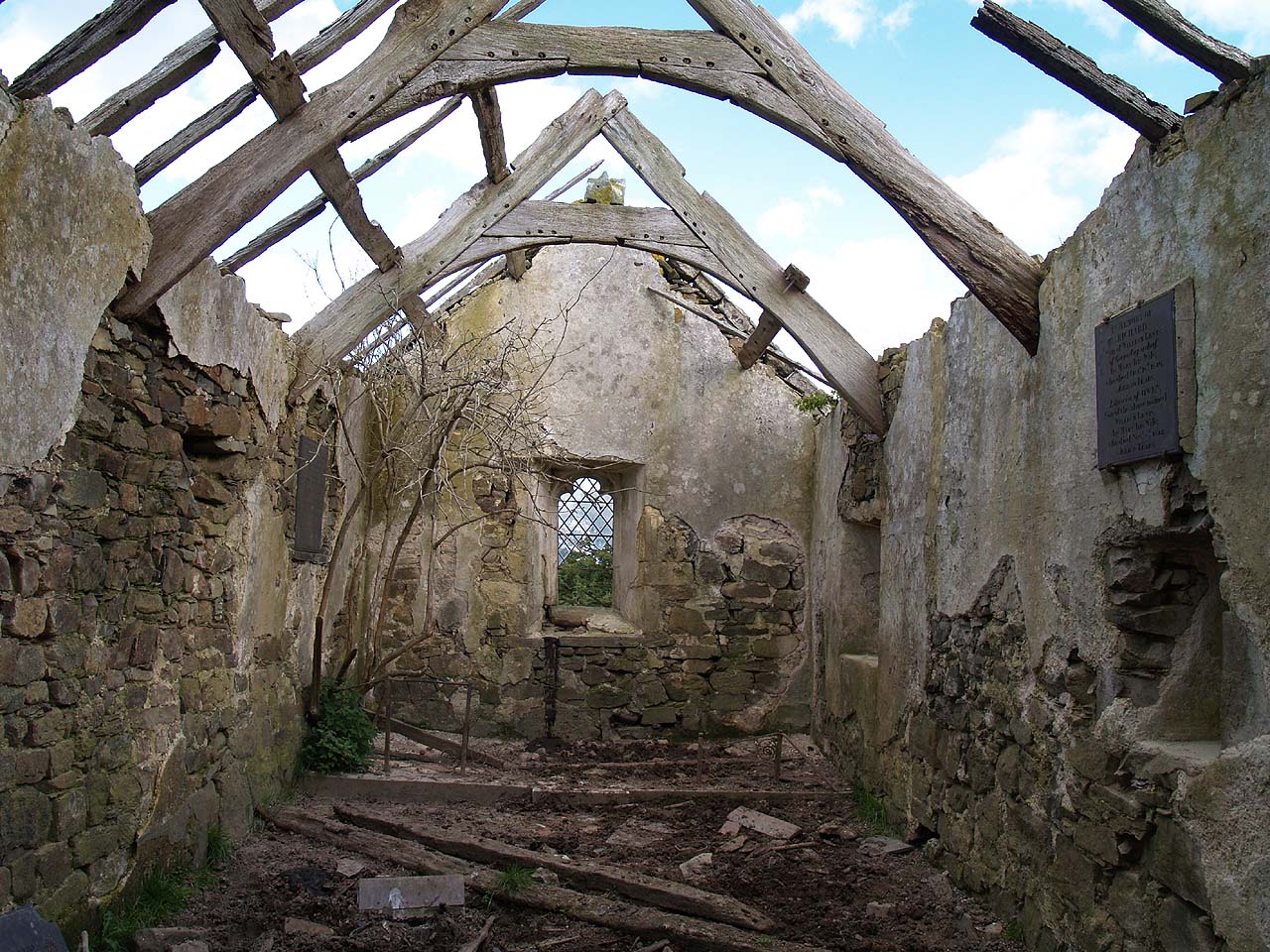 Church
Church Entries in Church (21)
Set Our Hearts Free: Escape the Clock
 Monday, April 7, 2014 at 10:18AM
Monday, April 7, 2014 at 10:18AM  It’s a prominent feature in nearly every church, if you’re facing the wrong way. When the worship leader looks beyond the congregation, or when the pastor lifts his gaze beyond his listeners, each of them sees a ghastly, inhuman face: the face of a clock.
It’s a prominent feature in nearly every church, if you’re facing the wrong way. When the worship leader looks beyond the congregation, or when the pastor lifts his gaze beyond his listeners, each of them sees a ghastly, inhuman face: the face of a clock.
North Americans are a scheduled, punctual people. Work starts on time, our trains run on time, and regularly scheduled television shows toll the evening hours. Sunday morning is no exception. Church starts—and ends—on time. Greeting, 2 minutes. Music, 18 minutes. Announcements, 3, Special Music, 5 Offering, 3, Sermon, 27, and the Altar call (where eternal destinies hang in the balance) is 3 minutes. When a church has three Sunday morning services, 8:30, 10: 00, and 11:30, the clock is part of the planning. Maybe it's the master. Nor does it matter if our liturgy is one hour, or 75 minutes, or 90. When the speaker runs overtime, the congregation will signal their impatience with the mighty rustling of closed Bibles or the gathering of belongings.
I want to tell you why we should break the Sunday service clock, and why this idea will almost certainly fail.
THROW AWAY THE CLOCK:
The Puritans of old listened to three-hour sermons, broke for lunch, and then listened some more. Modern Chinese house churches gather for music, meals, and all-day teaching. Latin American Pentecostals sing for hours (usually with the sound system blaring into the street).
But we are efficient: the mystery of Christ explained in a thirty-minute sermon, or the majesty of the Eucharist delivered and received within a reliable timeframe. It’s true: the Holy Spirit can change lives in flash of a lightning bolt—but the work of God is as difficult to schedule as a lightning strike.
Dream with me:
- What if we served Sunday breakfast at church? Let’s put grandma to work in the service of God’s kingdom.
- What if we took the time to listen to one another, pray for one another, or even helped repair each other’s cars in the parking lot?
- What if we—all of us—took the children outside to play and sing under God’s good sun?
- What if we finished church up by noon—and stayed together to watch football? (We could provide easy chairs so Dad could fall asleep)
- What if we were the family of God?
WHY IT WILL FAIL:
It will fail because the clock is inside all of us. It will fail because any attempt at external change in the Sunday schedule without addressing the internal change in our hearts misses the point. Changing the schedule without changing our hearts is doomed to failure.
Any outer change to the North American Sunday schedule is an attempt to put a Band-Aid on a clogged artery. Band-Aids are fine for surface issues, but they cannot heal the heart. We need open-heart surgery—but what will open our hearts?
To crack our chests we must ask questions like these:
- What is the meaning of Sabbath?
- Why do we gather once a week?
- When does Jesus get what he wants out of church?
- Is “family” a metaphor or a reality?
- What would make church meetings so compelling people would never want to leave?
Nor can any of these questions be addressed on the blogosphere, Twitter, or even in the halls of our seminaries. These are questions first for our individual hearts, and then for the family of God to gather and share. Perhaps we could all (individually and corporately) start with, how and why have we let the world press us into its mold?
Beyond Mere Community
 Thursday, April 11, 2013 at 08:53AM
Thursday, April 11, 2013 at 08:53AM  EDITOR'S NOTE: I run this article each spring because I'm so committed to it's message. So far--in four years of blogging--I've grown to embrace this message more and more, although I've modified the language, softening it here or there an an attempt to dialogue with others. If you've commented in past years, let me know if your thoughts have developed.
EDITOR'S NOTE: I run this article each spring because I'm so committed to it's message. So far--in four years of blogging--I've grown to embrace this message more and more, although I've modified the language, softening it here or there an an attempt to dialogue with others. If you've commented in past years, let me know if your thoughts have developed.
After 40 years of walking with God I have met plenty of unhealthy Christians who belong to a church, but I have never met a healthy Christian who does not belong to a church. What are we to do with this? The currently popular solution is to hang out informally with our believing friends and declare, ‘This is my church. These people know me and love me. I receive nothing from organized religion.’”
I wrote these words three years ago, and after thinking about it for a year, I have only one revision to make: After 43 years of walking with God I have met plenty of unhealthy Christians who belong to a church, but I have never met a healthy Christian who does not belong to a church.
It’s difficult to stand in defense of the church when the church is so screwed up. It’s a helluva a way to run a railroad, but apparently the Father thinks it’s worth the risks. We were designed for community, but also something beyond mere community, we were designed for the church.
Many will object, and I invite you all to tell me gruesome tales of hypocrites, self-righteous blowhards, and sexual predators. I get it. The North American church is desperately sick, and in many cases the church hinders the spiritual growth of believers. But before we all decide have coffee and croissants down the street with the cool kids and call it church, I’d like to suggest that God has given us a few clues about what He thinks makes up a church. The bottom line is: church is God’s idea, and we ignore it at our peril.
It’s a book-length discussion--a life-length discussion, actually--but here is one man’s list of at least six vital parts of a real church:
- The church meets together regularly: Sunday morning isn’t the only possibility. In fact, Acts 2:42-47 suggests they met together far more than North Americans might find comfortable. In a variety of settings, for a multitude of reasons, followers of Jesus meet together regularly and share their lives together. I don’t give a rip when or where, but regular, habitual gathering is a mark of the church.
- The church has a defined structure: Structure is built into God’s order of creation. Single-celled organisms reveal astonishing complexity of function; in the human body there is individualized function. Without the structure of a skeleton, the body cannot stand. These physical realities point toward spiritual truth. Amazingly, the scripture seems to endorse a variety of church structures, but every New Testament church had a recognizable structure. We can disagree on what that structure may look like, but it’s not possible to read Acts or the Epistles without recognizing it’s importance.
- The church provides authority: Authority! Just mention the word and people tense up. Abuses abound, guilt is common currency, and the church in North American differs little from any business down the street. Yet we all must personally come to terms with passages like, “Obey your leaders and submit to their authority.” (Hebrews 13:17) Paul’s letters to Timothy and Titus could be considered all about authority! Nearly everyone has a horror-story about abuse of authority in the church. Here’s my take: authority without compassion and relationship makes a sham of God’s Kingdom, but compassion and relationship without authority misses God’s Kingdom entirely.
- The church is a proving ground for love and forgiveness. “Therefore, as God's chosen people, holy and dearly loved, clothe yourselves with compassion, kindness, humility, gentleness and patience. Bear with each other and forgive whatever grievances you may have against one another. Forgive as the Lord forgave you. And over all these virtues put on love, which binds them all together in perfect unity.” (Colossians 3: 12-14) These words are impossible to live out in isolation. I believe the Father designed families and churches as the venues for love and forgiveness. How can we live out these words apart from our families, or the church--which is the family of God?
- The church equips God’s people. Christian maturity requires a nurturing family atmosphere. Gifts of the Holy Spirit and the development of Christian character thrive in a healthy community. Entertainment apart from equipping is antithetical to God’s plan for the church--there are plenty of churches that amount to nothing more than TV shows. But fellowship and community without equipping also falls short of the mark. If there's no equipping going on, it's not fully the church. Jesus is into lab, not lecture. And it's not recess, either.
- The church provides a unique corporate witness: There have been exceptional individuals throughout history. Saints and geniuses appear larger than life, and because they are are so exceptional, they are easily dismissed as individuals, even freaks. But who could dismiss an entire community of faith? “A new command I give you: Love one another. As I have loved you, so you must love one another,” said Jesus in John 13: 34 “By this all men will know that you are my disciples, if you love one another.” The early church would either get you healed or care for you until you died. Widows, orphans and outcasts of the first century knew there was a refuge called “the church.”
Object if you will: it’s easy to do. The church has failed in every area. Today’s post is not a defense of the way things are. The church in North America is desperately sick.
Some things should change--and I believe the change begins with us as individuals. If you must leave your current church, then go. But where? If you can find a group of believers attempting to fulfill these six ideals you will land in a safe place. Leaving a sick church may be the best decision. Ignoring God’s plan for your personal growth as a disciple never is.
What If You Can't Go Home?
 Thursday, November 15, 2012 at 09:49AM
Thursday, November 15, 2012 at 09:49AM It’s one thing to call the prodigals home. It’s quite another to have a home worth returning to.
In a post last year I highlighted Christian prodigals, people who love Jesus but live far from home. They have taken the family inheritance and squandered it on travels in Christendom; left their family in search of something else and live as if their family is dead. In the comments at that post more than one person observed that “home” may not be what Jesus portrayed in his parable:
When you've been harmed by men pursuing their own agenda, it's easy and natural to be skeptical of all church institutions. It becomes hard not to, when it's happened more than once.
It’s a fair question: What if we return home to a place ruled not by the Father, but by older brothers filled with judgment or manipulation?
Another friend texted me to ask what if work or marriage or life have brought about a change of location, and the new landscape is barren and cold? What if you left home for all the right reasons, but there is no family of faith healthy enough to adopt a mature son:
My previous church feels like home and everything in my new city feels like a maternity ward.
He has a point: so many Evangelical churches focus on the new birth to exclusion of worship, community or spiritual formation. What happens if you’ve eaten at a healthy table only to find bread and water at the next?
Still another friend observed that the restless heart of the prodigal needs a transplant:
Christians drifters will never find that perfect church, so they are going to stay just long enough until the newness wears off and they see a few flaws, then it's off to some new church that seems more exciting and more spiritual. Reminds me of Bonhoeffer: "Every human wish dream that is injected into the Christian community is a hindrance to genuine community and must be banished if genuine community is to survive. He who loves his dream of a community more than the Christian community itself becomes a destroyer of the latter, even though his personal intentions may be ever so honest and earnest and sacrificial."
And when you quote D-Bon, it’s the last word, right? Well, no, actually. These friends and others have only opened the conversation.
Students of Jesus is about spiritual formation. It’s about each of us developing the kind of relationship with the Master that leads to rest and peace. It’s about taking the yoke of discipleship. I’ve tried to avoid criticisms of the church at large because I have no voice or control over the church at large. Besides, church-bashing is so fun and easy it requires no particular insight or revelation. Anyone can do it. Still, it’s true that our personal spiritual formation is not complete apart from the community God intended--the church.
How can we address the deep need for true community of the Spirit when there are churches devoid of such life? How can we hold the Christian prodigal accountable for their own hearts when some have left home out of self-preservation?
To those who have been wounded by the church I would point toward the Lord Jesus. The testimony of John reminds us, “He came to that which was his own, but his own did not receive him.” (John 1:11) It’s not news that religious houses may be the places most in need of his presence. If we return home with a Christlike character we will be welcomed by some and abused by others. A modern truth: when we return the Father may not be waiting inside the building at all. The older brother may have taken over or--worse--the farm may have failed altogether. In these cases our calling to return may be especially difficult and sacrificial; we will take our place among those Jesus calls “blessed” in the beatitudes.
To those who are searching for a new home I would point toward the journey of Abraham. The father of faith “was looking forward to the city with foundations, whose architect and builder is God.” (Hebrew 11:10) He had seen the blueprint and was searching for where the architect and builder was at work. The benefit of a growing up in a healthy home is that we will not settle for a poor substitute. Our past becomes the blueprint for the future. There is a difference between running from home and looking for a new one: Dr. Tolkien reminds us that “not all who wander are lost.”
To those who see the fatal flaw in human idealism I would point toward the power of the call. Jesus understood that the very offer to “Come and see” can change lives. There was no shortage of idealists in Jesus day. He welcomed those with high ideals and tempered them with down-to-earth teaching about birds, flowers, foxes, wheat and tares. When his disciples believed fire from heaven was the answer he demonstrated the wisdom and true power that flows from keeping after the Father’s business. We can explain there is often a disparity between the builder’s plans and the worker’s craftsmanship. We can help them realize that a thoughtful pastor understands that much of his work may in fact be wood, hay, and stubble.
These are merely fingers in the wind. How should we speak to the Christian prodigal? How can our actions and counsel make a place for those who believe they have no place? There’s no shortage of comment when describing the problem--why not help me explore the solution?
A Long Way to My Place
 Thursday, June 7, 2012 at 10:39AM
Thursday, June 7, 2012 at 10:39AM  Sometimes just getting to my regular seat at church is a pain in the--well, it’s a pain. There are so many people I’d like to avoid. I love the church, but I don’t like the people in the church. Welcome to the True Confessions edition of Students of Jesus.
Sometimes just getting to my regular seat at church is a pain in the--well, it’s a pain. There are so many people I’d like to avoid. I love the church, but I don’t like the people in the church. Welcome to the True Confessions edition of Students of Jesus.
My usual seat is on the far side of the auditorium and there’s no way to it other than by passing by people I’d rather not talk to. Walk with me.
There’s The Gullible Guy: He’s never seen a Facebook post he didn’t believe, and he means to tell me about every one. There’s a secret government campaign to confiscate Bibles in America; there’s a new prophecy about Israel and the 2012 Euro Football tournament; Sesame Street is the Devil’s playground. If I try to point out the problems with each one of these revelations it will mean I’m part of the conspiracy. Plus I’ll miss the entire praise and worship portion of church. I move on.
Just a few feet away is The Blowhard: He’s memorized the entire book of Malachi. He chose Malachi because “Christians don’t understand that the Old Testament is the key to the New Testament.” When it comes to orthodoxy, it’s his way or the highway to Hell. He snags my arm because he read something on my blog that caused him to think I might be a Neo-Platonist Arminian Sycretizer. At least, that’s what I think he said because the band is into their second song and I still haven’t gotten to my seat. Plus my coffee’s getting cold.
I swing wide to avoid Miss LonelyHearts. Otherwise she’ll hug me and hold both my hands while she asks me about every member of my family. Some people say she’s just really empathetic, but it seems each question is more about prolonging the conversation than it is about whether my son’s team won their age-group community league soccer game. She seems nice enough, but I resist her brand of empathy because I suspect it’s really more about her than it is about me.
The path to my seat requires that I swing wide around The Flag Lady, who worships with her own set of color-coded worship banners: red for sacrifice, purple for royalty, and that gold one that always makes me think of the New Orleans Saints. I steer past The Prostrate-n-Kneeling Crew, who always seem to be deeply touched by every song. But my seat is in sight.
I still can’t sit down yet because The Homeschool Family is running a ferry service in and out of the aisle with their six children, all of whom have names that end in “-iah.” This is confusing because they all look identical as well. If I have to say their names, I usually cough when pronouncing the first syllable and then say the one syllable I know.
When I finally get to my seat, I find it’s taken. There’s a New Guy, about 30, long brown hair, dark eyes, and a beard. He’s just a little too old for the sandals and T-shirt look, but he apparently thinks he can pull it off. Church is crowded today, so I don’t even get the one-seat buffer that common courtesy demands. I nod toward the new guy, using my best Alpha-male look and take my place next to him. I’m finally ready to worship but the presence of the New Guy kind of cramps my style. I steal a look his way. I think he’s into the worship. He’s not super demonstrative but he’s grooving on the music in his own way.
At our church the band circles around for a soft landing by the end of the third song, but they keep playing quietly in the background as someone steps forward to present a scripture-reading. They throttle back and settle in with the mood music. The reader opens the Bible and raises the microphone to his mouth:
"In bringing many sons and daughters to glory, it was fitting that God, for whom and through whom everything exists, should make the pioneer of their salvation perfect through what he suffered. Both the one who makes people holy and those who are made holy are of the same family. So Jesus is not ashamed to call them brothers and sisters."
I look to my left at the new guy and something strange is happening. His hair seems even longer. The T-shirt has morphed into some kind of robe with a golden sash, and--I swear to God--he’s beginning to glow.
After he listens to this passage he leans toward me and says: “I love you, Brother. I’ve loved you through each stage of your life, including the rebellious stage, the doubting stage, the porn stage, the video-game stage, and the greedy stage. I’m not ashamed to call you my brother.” Then he gestured to everyone in the room and asked me “If I am not ashamed of you, why then, are you ashamed to call these people your family?”
Meditation: Having His Heart
 Monday, June 4, 2012 at 12:02AM
Monday, June 4, 2012 at 12:02AM  Part of his true beauty is that Jesus loves the unlovely.
Part of his true beauty is that Jesus loves the unlovely.
I’m drawn to him because he not only cleansed the lepers: he reached out his hand touched them even when everyone else demanded that they shout “Unclean!” He not only healed their skin, he received them kindly. I want that kind of heart.
When the male-dominated leaders of the day singled out a woman “caught in adultery,” (where was the other half of the adulterous duo?) Jesus did not condemn. Instead he challenged the very accusers with the now-famous words, “Let him who is without sin cast the first stone.” My heart is moved by mercy mixed with justice. I love him for speaking those words. I even love him for saying raising the woman to her feet and saying, “Go and sin no more” because it was the best thing for her.
I love Jesus because he reminded a synagogue filled with people bent on perfection that a bent-over old woman was also a daughter of Abraham. I love him because when Jesus dined with Zacchaeus it meant that he brought salvation to the house of a tax collector. I love him because a woman previously infested with seven demons was the very one he chose to first deliver the good news, “He is risen.”
Time and again Jesus demonstrated what he taught: mercy triumphs over judgment. I want to be like that.
Jesus taught me to to love the unlovely.
And because he taught me to love the unlovely, I love his bride: the church.
Shouldn’t we all?

